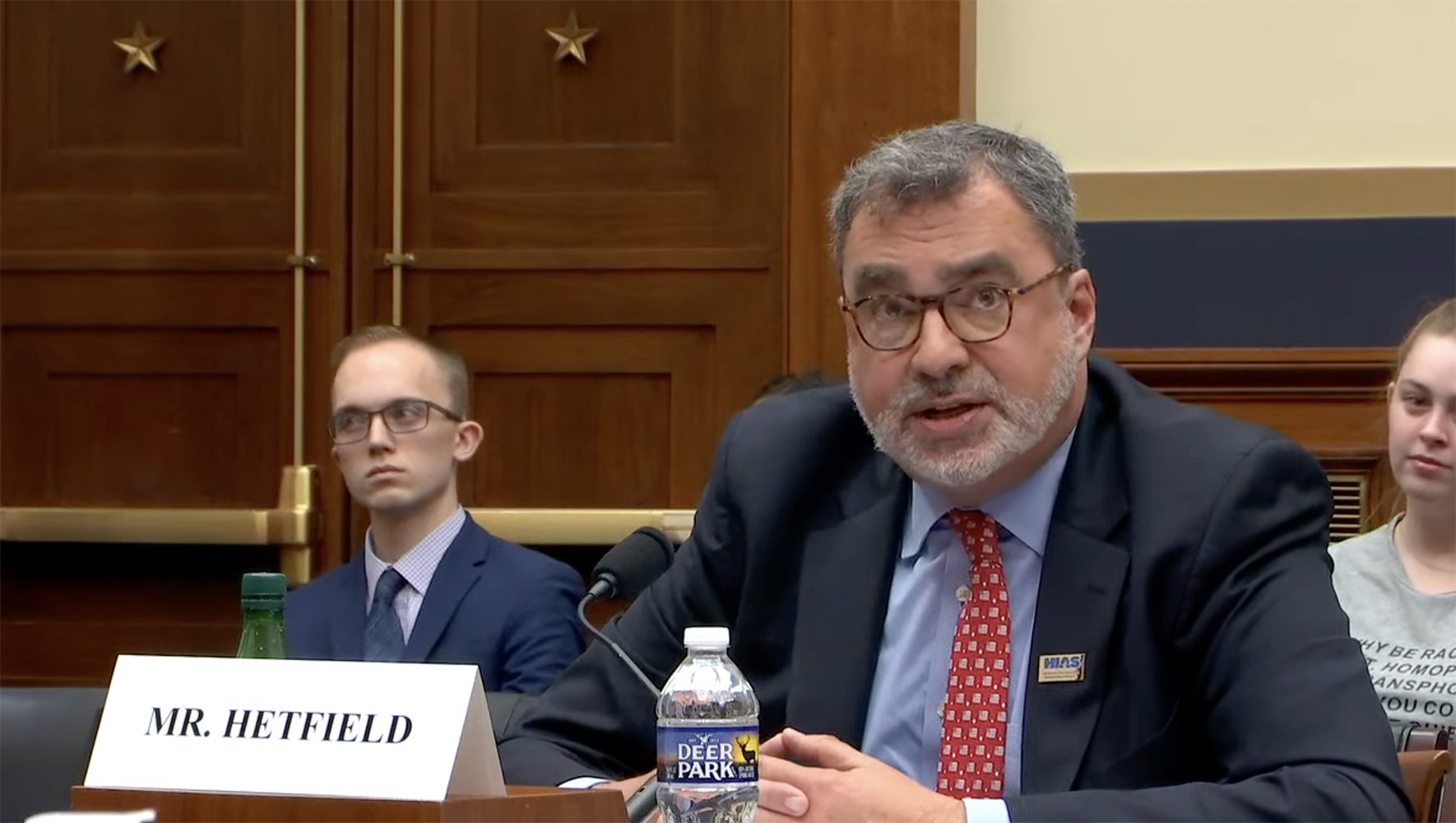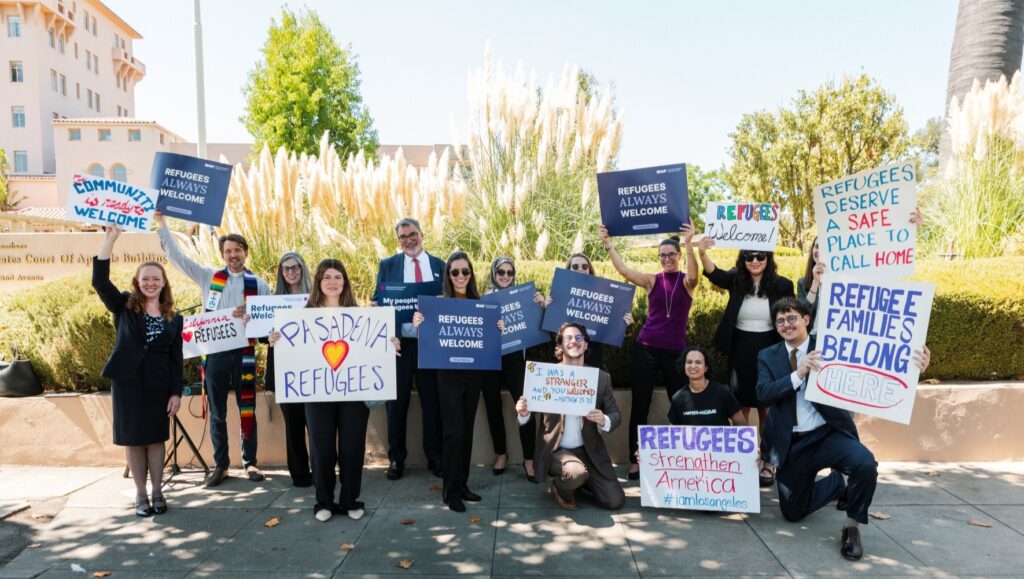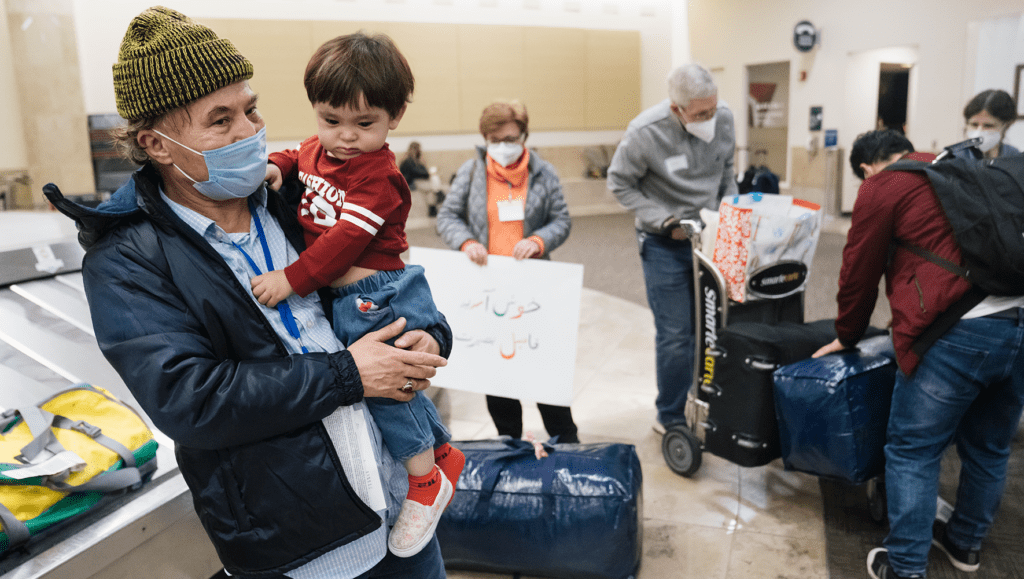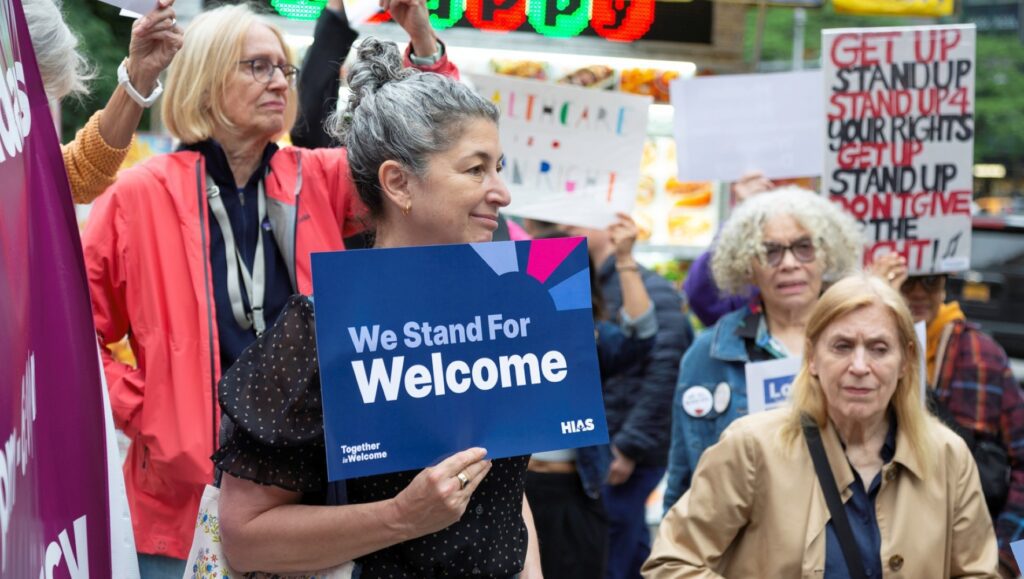
We’re pleased to introduce Deep Dive, a new article series on hias.org that explores, in detail, a specific issue relevant to HIAS’ work. In this first edition, we lay out five key facts about one of the most important issues informing the upcoming U.S. presidential election: immigration, refugees, and asylum.
Few issues loom larger for the upcoming presidential election in the United States than immigration. During the Republican National Convention, a parade of speakers spoke about undocumented immigrants, asylum seekers, and refugees in near-apocalyptic terms. Democrats, too, have touted their “toughness” on immigration, while the Biden administration has enacted historically stringent measures to curb asylum. This change reflects a public souring toward immigration: Gallup recently reported that 55% of Americans want immigration levels reduced — the highest figure since 2001.
Since our founding more than a century ago, HIAS has provided essential services to refugees, asylum seekers, and other displaced and stateless people around the world. In order to frame the U.S. immigration debate in truth — rather than misinformation, propaganda, and innuendo — below are five relevant facts you should know.
Fact One: Seeking Asylum is Legal.
The United States government defines asylum as a form of protection granted to foreign nationals or stateless individuals who face, or are at risk of facing, persecution on account of their race, religion, nationality, membership in a particular social group, or association with a particular political opinion. Asylum rights became enshrined into international law following the Second World War and were codified in U.S. law in 1980. People have a right to claim asylum in the U.S. regardless of how they entered the country.
In the past decade, asylum rights have come under sustained threat. But it remains legal in the United States — and a crucial right to protect.

Asylum Backlog Presents Anguish, Uncertainty for Seekers
Read MoreFact Two: Asylum Is Not Easy to Obtain.
Immigration opponents have portrayed the United States asylum system as a free-for-all, where every individual who approaches the border claims asylum and then enters the country freely. In fact, the asylum process is complex, tricky, and, for many applicants, one that does not result in acceptance.
Asylum claims filed in immigration court face steep odds, especially for claimants — some 70% of the total number — who do not have legal representation. But even those who do obtain the services of an attorney enter a system with a daunting backlog.
Moreover, there has been an onslaught of recent changes at the U.S.-Mexico border that prevent people from accessing the asylum system in the first place. Recent policies require people to wait in Mexico while trying to access appointments via a cellphone app, deny due process in initial screening interviews, speed up deportations at the border, increase the usage of immigration detention, and simply deny entry to asylum seekers altogether.
All these factors contribute to the approval rate for asylum seekers remaining low. In 2021, only 37% of asylum applications were granted.
Asylum claims filed in immigration court face steep odds, especially for claimants — some 70% of the total number — who do not have legal representation.
Fact Three: Asylum Seekers and Refugees Help the Economy.
A common claim made by anti-immigrant politicians is that asylum seekers and refugees are a drain on the economy, namely by competing with native-born Americans for jobs and driving wages down. In fact, the opposite is true: A recent study from the Department of Health and Human Services found that between 2005 and 2019, asylees and refugees contributed a net $124 billion to the U.S. economy – more than the GDP of the Dominican Republic.
Refugees and asylum seekers are almost 50% more likely than the general U.S. population to become entrepreneurs, despite facing obstacles — like easy access to credit — that American-born entrepreneurs take for granted. Earlier this year, HIAS launched the Economic Advancement Fund (EAF), a Community Development Financial Institution designed to provide resources to refugee entrepreneurs in the U.S.
Fact Four: Asylum Seekers and Immigrants Commit Fewer Crimes, Per Capita, Than Average.
One of the most consistent lines of rhetoric from anti-immigrant politicians is that refugee and asylum seekers are directly responsible for an increase in crime. At the Republican National Convention, Sen. Ted Cruz (R-TX) said that “every day Americans are dying — murdered, assaulted, raped by illegal immigrants that the Democrats have released.”
The facts do not back up this insinuation. A 2020 study found that in Cruz’ own Texas, a state that records the immigration status of everyone who is arrested, undocumented immigrants are significantly less likely to commit crimes.
A 2020 study found that Texas, undocumented immigrants are significantly less likely to commit crimes.
Fact Five: Our Asylum System Is Broken. But That Doesn’t Mean It Can’t Be Fixed.
Immigration opponents often argue that measures to prevent people from entering, and to curtail access to asylum — such as construction of a border wall, or Title 42-style suspensions — are the only solution for tackling the rise of encounters at the U.S.-Mexico border. This is a false choice. People who are fleeing danger will not stop trying to save the lives of themselves and their families. Draconian policies do not stop people from coming — they only increase a volatile and chaotic environment that denies the rights of asylum seekers and does nothing to provide security at the border.
Real solutions are possible, but there must be political will to achieve them. The present situation along the border occurred due to multiple factors, not least that Congress has failed to pass significant immigration reform since 1996.
More resources are also needed on the local level. In cities across the U.S., HIAS has seen an outpouring of welcome for newcomers seeking safety — but these communities can’t do it alone. The federal government has failed to allocate sufficient resources to support cities as they work to meet the needs of asylum seekers.

Hetfield Calls for Immigration Reform at U.S. House Hearing
Read MoreTake Action
Opponents of immigration disparagingly compare the recent influx of asylum seekers to a military-style “invasion.” This dehumanizing rhetoric — which has become pervasive among members of Congress — is dangerous, untrue, and fuels policies that put asylum seekers in further danger. Refugees, asylum seekers, and other displaced people are an asset to our communities, and deserve to find welcome, safety, and opportunity in the U.S.


